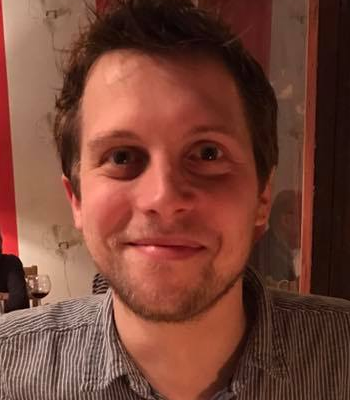
Carl Atkinson
Current Employer/Organisation Name
Environment Agency
What have you been doing since leaving Exeter, and what are you doing now?
I left Exeter with a Biosciences degree to join a Veterinary Diagnostic Laboratory as a Microbiology Lab Technician. This was a really interesting role in which I could use the vast array of theory I learned in my degree and apply it in practical ways, as well as learn hands-on diagnostic procedures and handle common micro-organisms on a day-to-day basis. Over the course of 5-6years and after much learning, diversification and exploration of new disciplines I moved into a Senior Lab Technician role and then into a Departmental Management position. I spent a further 7-8years developing the department I had initially joined years earlier. I then set about evolving the roles of the team that I line managed whilst steadily growing the team to respond to significant market growth. After the Covid pandemic provided significant challenges to our ways of working, I implemented some key changes to our daily routine and yielded a new pattern of workflow which yielded successful progression and development. However, I was keen to apply the skills I had learnt in a new environment so decided to join the Environment Agency as a Team Leader. This was a new career field for me and not aligned to anything I had studied at Exeter or – technically – covered in my years with the laboratory. I was keen to embark on a more sustainable lifestyle as well as see how my leadership skills could be utilised in a new team and on a different set of challenges. Since then I’ve led two separate teams, the latter of which (and my current team) are focussed on delivering sustainable, capitally funded, flood defence projects across the Southwest of England. My role is to line manage a cohort of project management professionals as well as manage resource across our hub wide team and take a lead in recruitment. Moreover, my focus is on strategic workforce planning that will support a capital programme of project delivery into the future.
Why did you choose this career? And what do you enjoy most about your work?
I first wanted to utilise the skills and theory I’d learnt in my degree and whilst so many of my peers moved into different sectors or embarked on post-graduate study, I was keen to move my theoretical knowledge into the practical world. The lab offered this in abundance and I am incredibly grateful for the opportunity that I had to work with significant veterinary pathogens. Developing into leadership and management it was a natural progression from the senior technical role. As I focussed more on leadership I knew that I would not be honing my technical skills as much and I could foresee a pathway where I’d need to make a choice about whether I wanted to be a technical leader or a ‘people’ leader. There would be more opportunities to experience different career industries if I developed my people management skills further and that is the reason I chose to move industries and move organisations. I am learning more and more everyday about delivering improvements, however big or small, in a collaborative way. I think this is vital to ensure we maximise the opportunities to deliver enhancements for the environment and communities alike.
Please tell us if you were a member of any societies, groups or sports clubs?
Member of the Biology Society
What did you enjoy most about your programme and what was the biggest highlight?
Microbiology! I was fascinated by the microbial world. How bacteria and fungi, in particular existed and proliferated and how they can cause such significant implications in healthcare systems and also the environment.
What did you enjoy most about studying here?
The environment – the campus, the relationship with the city, the infrastructure, the ambience, the family.
Why did you choose to study at Exeter?
I knew a lot about Exeter because it is not too far from where I grew up. My sister had also studied Law previously and I had visited on a number of occasions and felt warm and welcome when on campus.
What skills and experiences have been most useful for your career?
I believe networking has been valuable. There were always several events at the university supporting students, post-grads etc to build networks and get their work showcased to wider audiences. I also learnt a great deal on presenting yourself; something I was extremely anxious about prior to my studies but know feel a lot more confident in doing, particularly as a leader often in front of large audiences with more technical knowledge than myself.
What advice would you give to a current student who wishes to pursue your career?
Expect anything and nothing is out of reach. In a world which is technologically very different to when I graduated (not too long ago!) it is easy to rely heavily on the technology available to us. However, what I’ve learnt – particularly during the pandemic – is people and relationships are irreplaceable and we should all learn to value people’s difference and embrace diversity.
What are your plans for the future?
Continue to explore the industry and leadership in the public sector. I don’t tend to set hard targets because it’s all too easy to set false dawns. As long as I feel I am making a difference and continuing to grow I will be happy.

